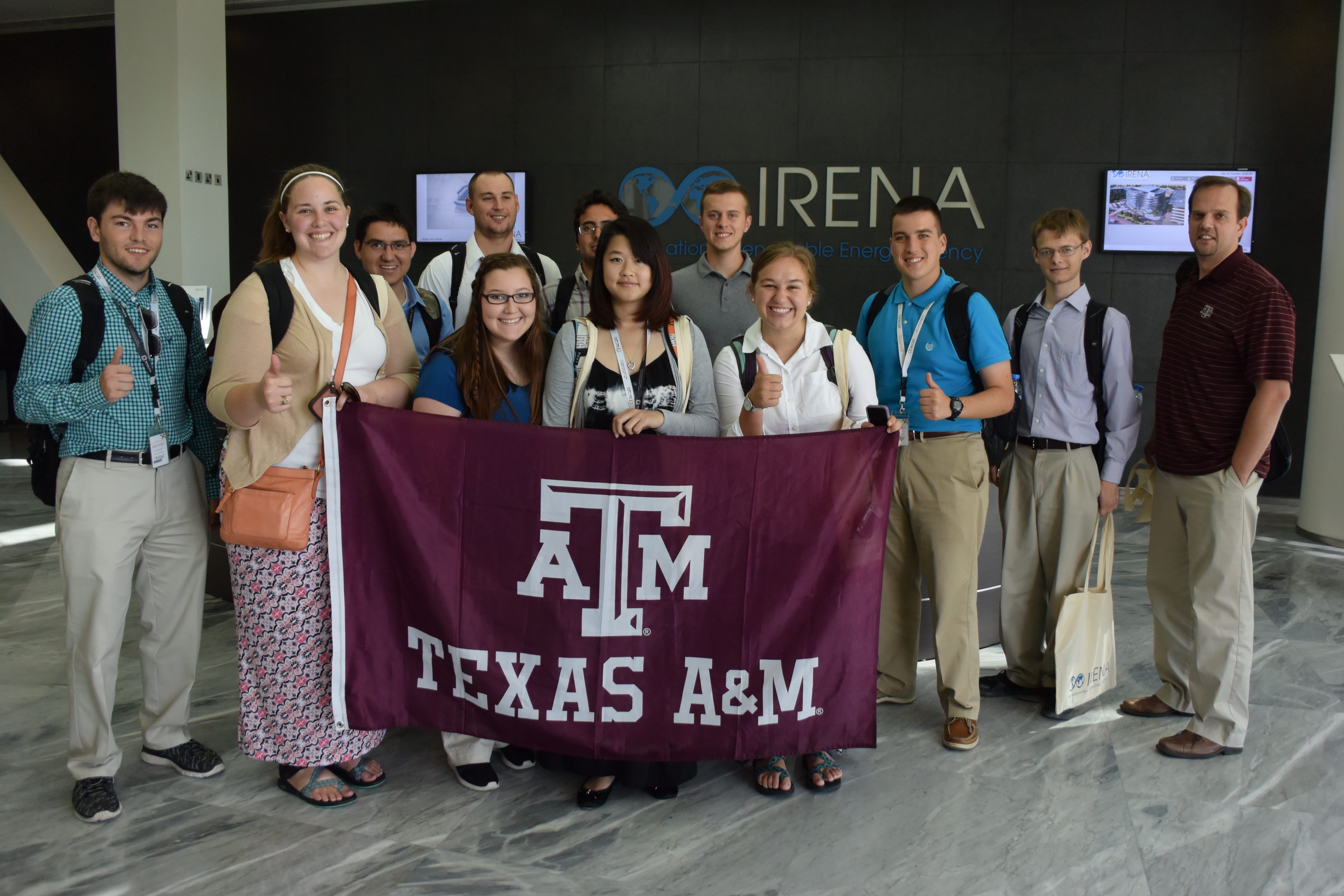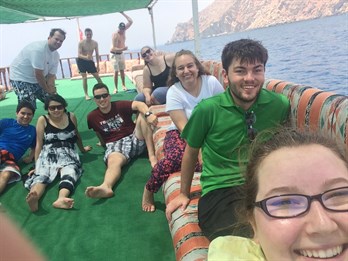
Students from the Department of Nuclear Engineering at Texas A&M University returned from a two and a half week trip to Khalifa University within United Arab Emirates (UAE), participating in a study abroad program that is designed to both educate students on the technical aspects of global nuclear energy while immersing the students in the culture and lifestyle of the city of Abu Dhabi and its people.
“This trip has opened my eyes to what is out there in the world,” nuclear engineering student Arturo Cabral said. “I would encourage students to go. The people you meet are unique, and I feel that is how you learn from different cultures, by talking to them. The places we saw took my breath away with the different types of architecture and landscapes and the class itself was really helpful.”
In addition to the students’ coursework instructing them on nuclear energy systems, methods of system design and safety considerations, students also toured the Sheikh Zayed Grand Mosque in Abu Dhabi as well as participating in a desert safari and touring the Barakah Nuclear Power Plant. Assistant Professor Dr. Mark Kimber, who traveled with the students, said the students were able to take more than just an educational experience away from the classroom.
“Many of our students have never been outside the United States and many of them have never even been outside the state of Texas,” Kimber said. “It’s a wonderful opportunity just to experience another culture regardless of what the instruction might be.”
A strong relationship between Texas A&M and Khalifa University has allowed the department to collaborate with their nuclear engineering department to provide working knowledge regarding nuclear engineering concepts and writing joint research proposals. The department faculty have also assisted the Texas A&M’s Nuclear Security Science and Policy Institute (NSSPI), Khalifa University, and Sandia National Laboratories (under the guidance and support of the U.S. Department of Energy’s National Nuclear Security Administration and the U.S. State Department’s Partnership for Nuclear Security Program Office) in establishing the Gulf Nuclear Energy Infrastructure Institute (GNEII). The mission of this internationally-recognized, regional institute is to immerse future Emirati nuclear program decision makers in safety, safeguards, security, and nonproliferation concepts and to familiarize them with how these concepts apply in a regional and international context.
Initiatives like NSSPI's GNEII and the department's collaborative efforts with Khalifa University serve as important educational tools for establishing nuclear power capabilities in countries seeking to enter the nuclear industry. These also provide a knowledge base to countries like the UAE, whose four pressurized water reactors at Barakah Nuclear Power Plant are part of a newcomer nuclear program that will be operated by the Emirates Nuclear Energy Corporation beginning in 2017. This newcomer nuclear build is the first program build to be completed in more than 30 years, since China embarked on its own nuclear power program.
According to Kimber, for this reason such global experiences are important to students of any engineering discipline because many engineering endeavors extend beyond national borders. Experiences such as this study abroad allow students to understand and experience the social differences of cultures firsthand and prepare them for the possibility of working internationally.
“It is important for anyone in an industry that is globally extended to appreciate the nuances of the culture, to what is important and even things such as the proper greeting,” Kimber said. That's a huge foot in the door and being culturally aware of things like that is a huge benefit.”
 11 students shared their coursework with four students from Khalifa University and were able to interact with them on a personal level. One of the students from Khalifa University invited the Texas A&M students and Kimber into her home, a rare experience that according to Kimber, showed him and the students the emphasis on family within the Emirati culture.
11 students shared their coursework with four students from Khalifa University and were able to interact with them on a personal level. One of the students from Khalifa University invited the Texas A&M students and Kimber into her home, a rare experience that according to Kimber, showed him and the students the emphasis on family within the Emirati culture.
“To give you an appreciation for how rare this is, most of the expatriates who have been living there for six or seven years have never once been in the home of an Emirati,” Kimber said. “They prepared food for us and we got to see firsthand what the culture looks like: mainly the overwhelming emphasis on family.”
The students and faculty who took part in the trip all agreed that the experience was educationally beneficial, but was heavily enriched by the cultural experiences they took part in.
“It’s a once in a lifetime experience,” nuclear engineering student Tiffany Lee said. “Not that I wouldn't go back, but everything is just so amazing. I think this trip has helped me appreciate more how different cultures live and to be more open minded about their lifestyle.”